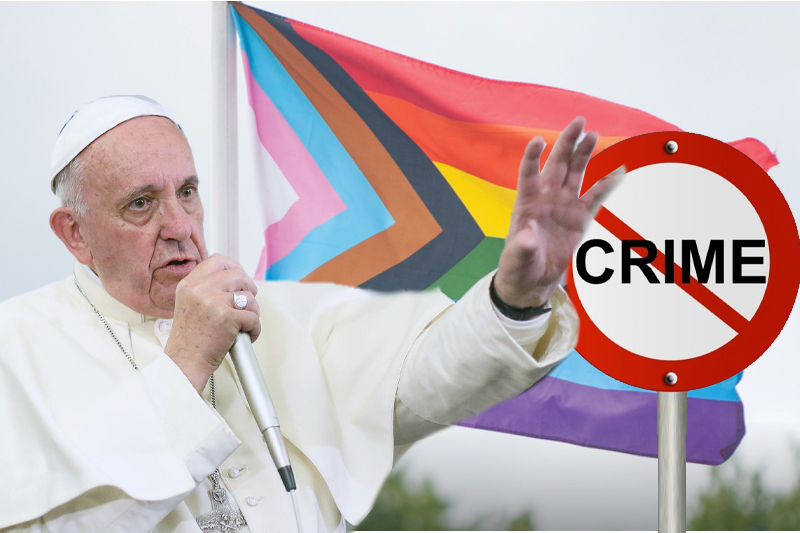

'being homesexual isn't a crime
Pope Francis called the laws that ban homosexuality “unjust” and said that God loves all of his children just as they are. He urged Catholic bishops who support the laws to warmly welcome LGBTQ people into the church.
Francis told The Associated Press in an exclusive interview that day that being homosexual is not a crime.
Francis admitted that Catholic bishops support laws that prohibit homosexuality or discriminate against LGBTQ individuals in some regions of the world, and he personally referred to the matter as a “sin.”
However, he ascribed such viewpoints to cultural backgrounds and asserted that bishops in particular needed to go through a transformational process to acknowledge the dignity of everyone.
He said, “These bishops must go through a conversion process,” pleading with them to show “tenderness, please, as God has for each of us.”
Francis made the first statements regarding such legislation as a pontiff, and they were hailed as a turning point by homosexual rights activists. But they also align with his overall perspective on LGBTQ persons and his conviction that the Catholic Church ought to be inclusive and devoid of prejudice.
11 of the 67 countries or jurisdictions that can or have actually banned consensual same-sex sexual behaviour do so, according to The Human Dignity Trust, an organisation that works to abolish such laws. Experts claim that where they are not in effect, laws prohibiting violence, stigmatisation, and harassment towards LGBTQ people nonetheless exist.
Despite a 2003 Supreme Court decision stating that anti-sodomy statutes are unconstitutional, more than a dozen states in the United States still have them on the books. Advocates for gay rights claim that outdated laws are used to excuse harassment and point to new laws, like Florida’s “Don’t say gay” law, which forbids teaching about sexual orientation and gender identity to children in kindergarten through third grade, as evidence of ongoing efforts to marginalise LGBTQ people.
The United Nations has repeatedly called for the repeal of laws that categorically criminalise homosexuality, arguing that doing so violates people’s rights to privacy and equality before the law as well as states’ obligations under international law to defend all people’s human rights, regardless of their sexual orientation or gender identity.
The Communications Ministry of Indonesia seeks to develop a public endowment fund, which would strengthen independent journalism across the country…
Radio Free Asia (RFA), a U.S. government-funded news network that broadcasts in nine Asian languages, has virtually fired everyone in…
The Trump government revealed its intent in action to consider layoffs on a grand scale, under which agencies of the…
The Trump administration has launched a sweeping initiative to monitor around 450,000 unaccompanied migrant children who were placed during the…
During the May half-term Gatwick Airport could experience delays because workers from two different groups plan to strike about pension…
A serious injury at a construction site has netted a 49-year-old union worker a $5 million settlement. The attorneys Kenneth…
This website uses cookies.
Read More